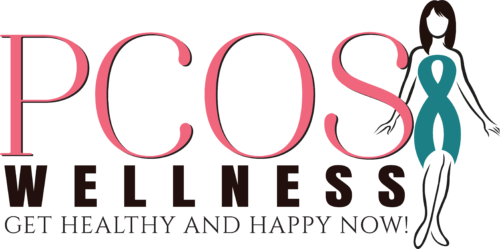
PCOS and Endometriosis: Same or Different?
PCOS and Endometriosis are not the same but they have a lot in common. PCOS is often accompanied by endometriosis, which can complicate your diagnosis and treatment. Endometriosis can cause a lot of pain, disrupt your periods, and cause or contribute to infertility. It can also cause constipation or nausea, and a sensation of abdominal fullness or cramping.
Mentally, the constant pain, fear of a flare-up, and anxiety about symptoms getting worse can contribute to higher levels of stress.
So, what is endometriosis?
Endometriosis is an abnormal growth of endometrium tissue (that normally lines the inside of your uterus) outside of your uterus. It typically involves your ovaries, fallopian tubes, and the tissue lining your pelvis. Endometriosis can also wrap around your pelvic organs, or rarely, invade your bowels. I once had endometriosis wrapped so tightly around an ovary that it almost strangled the blood supply to the ovary, which would have destroyed it and created an unhealthy medical situation.
The endometrial tissue continues to do the things that endometrial tissues do – thicken, break down, and bleed as you cycle. But with no way to exit your body, it becomes trapped and painful. If it is inside your ovaries, cysts called endometriomas may form (side note: there are many different types of ovarian cysts!).
You might experience pain in your lower abdomen, lower back, pelvis, rectum, or vaginal area. Pain tends to increase during sexual intercourse and while defecating. If you get a period, it may be abnormally heavy, irregular, or painful.
How is endometriosis diagnosed?
Endometriosis is really tough. Even when it’s suspected, ultrasounds and blood tests are not enough to diagnose it; you have to have surgery. Women with PCOS often end up having a lot of surgeries, such as cystectomies, and D&Cs. Doctors can use the opportunity to look for and remove endometriosis.
Is there a specific psychological treatment for endometriosis?
I am not aware of any psychological treatments specifically directed at endometriosis. Research seems to back up the idea that women with endometriosis and PCOS have higher levels of pain, increased sensitivity to pain in general, and more depression and anxiety.
How do I cope with endometriosis?
I focus on overall stress reduction, which is also good for PCOS, mindfulness training, and using cognitive challenges to retrain your brain about the pain. Basically, this means that meditation is good and mindful exercise/conscious movement is good for pain relief.
Pain sometimes feels strong, sharp, immediate, and overwhelming. Learning to slow down, breathe into it, and then challenge yourself to be realistic about it can be helpful. Asking yourself “how bad is this really, right at this moment?” “Is it something I can manage, even though it feels bad?” and related questions can help break the pain cycle.
When “mind over matter” isn’t enough, anti-inflammatories, warm baths or heat applied abdominally, and acupuncture can all be helpful.
Getting emotional support is also really important. You can get help and support by joining my private FaceBook group, PCOS Psychology.
If you’ve found other creative ways to deal with the pain of endometriosis, I’d love to hear about them! Send me an e-mail at AskDrGretchen@gmail.com.
Session expired
Please log in again. The login page will open in a new tab. After logging in you can close it and return to this page.
